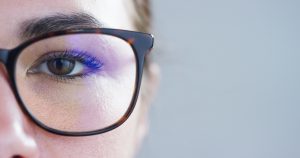
During virtually every dental examination, there is a review or updating of the patient’s health history and a clinical examination. If everything is consistent with good oral and overall health the notation WNL is commonly made, which is an abbreviation for Within Normal Limits.
There is however another less commonly known meaning to WNL; We Never Looked. Looking goes way beyond visual observation and includes other diagnostic tools such as radiographs, scans and laboratory testing. Let’s consider the scenario in which a patient has gingivitis for an extended period of time, this can transition into a rapid periodontal breakdown over a short period of time. If we would have identified the bacteria in the oral cavity by salivary testing prior to the breakdown, we might have noted highly pathogenic bacteria, which would have predicted the periodontal breakdown, and perhaps given us the information needed to intervene in advance. But we never ordered the bacterial test; we never looked. When we diagnose a patient with periodontal disease and identify the causative bacteria, we are able to determine the likelihood of a successful outcome post-operatively. This powerful information gives us the opportunity to treatment plan accordingly in advance, because we did look; we tested.
When we identify gum disease and treat without testing, we are treating pocket numbers, swelling, bleeding on probing, which are merely the signs and symptoms of the disease. When we identify the specific bacteria responsible for the patient’s case of gum disease, we can then address the cause and reduce the likelihood of disease occurrence and/ or recurrence in the future. Without testing we are guessing.
We, as oral health care providers, can enhance treatment outcomes and truly provide optimal care for our patients.
For more information on how to become an OralDNA Provider – scan HERE: 
- The Insights Provided by Salivary Testing - December 27, 2019
- I Don’t Need That, We’re Already Getting Good Results - November 29, 2019
- What’s Your Excuse? - August 30, 2019
